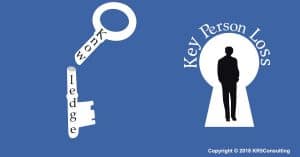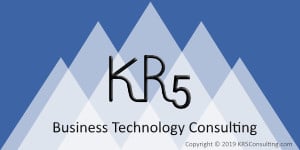How are your vital signs? Do you have information at your fingertips to help your business thrive? Or is lack of information causing your business to struggle?
Samantha Hounsell-Roberts was an NHS nurse for over a decade; has years of experience in hospitality; with a deep compassion for people; and helps ambitious business owners scale-up and exit.
We might enjoy watching a good hospital drama. It’s an emotional rollercoaster. The suspense, traumas and drama have us on the edge of our seats. It’s a race against time. Staff make split second decisions to save someone’s life.
Many struggle with getting the best of out of technology. Our guide, Business Technology: Essential Guide to Best Use, will help you create a robust process to ensure your new tech achieves your aims.
Faster Decisions
For hospital staff, the fast pace is often a reality. Staff need to complete many tasks that are time critical. They care for many, often very ill, patients on any day. Delays can have very serious consequences, which keeps us hooked on episodes of a hospital drama. Hospital staff must walk quickly to get everything done on time. When Rogan first met me, he couldn’t believe how fast I walked and called it my nurses walk.

It’s not only moving quickly; staff need to know exactly what to do when they get there. Information at your fingertips is vital to making quick decisions. One time, another nurse accidentally took my patient’s notes instead of hers. Her patient was going for an X-ray the other side of town. My patient was about to go down to theatre!
Of course, without this information at my fingertips, I wasn’t able to prepare my patient for theatre. This had a knock-on effect to the theatre staff and the X-ray staff for the other patient. Can you imagine the frustration and delays for both the patient and all the staff? Quick thinking, a bit of detective work and a phone call to X-ray, I discovered what had happened. I got in my black Mini Mayfair and shot across town to correct the error and the drama was over. I still have the image of the Anaesthetist ingrained on my mind, furious and jumping up and down when the notes went missing.
Better Decisions
Information at your fingertips is vital to making accurate decisions. Even simple questions such as where is your pain? Or what is your pain score on a scale of zero to ten? Is valuable data. If blood pressure has dropped and pulse rate is up it could be an internal bleed. A temperature might indicate infection. You can build an accurate picture so that staff can make a good decision for the patient.

Accurate data allows you to make decisions about priorities and what you need to do. In business that’s unlikely to be life or death, however it might make the difference between success and failure. You need to be able to rely on the information to make decisions. You’d frequently measure vital signs for a poorly patient so that you could act quickly if anything changed. Business needs up to date information for good and timely decisions.
Working as a team

You can’t be an expert in everything, and that’s okay. Working with others allows you to draw from different skills, knowledge and expertise. In a hospital just as it is in business, you need different people to come together to get the best outcomes. Staff need to know how best to convey information to each other. For example, a nurse might need to know the type of operation, high temperature, when to give antibiotics and when the patient last had pain relief. On the other hand, a doctor might want to review the wound or medication.
When you don’t have the right information, it might mean you can’t complete a task. Worse than that you might take the wrong action or miss doing something important. There might be an emotional impact to staff or other people – see How Business systems help your brand. There might be delays or people’s time wasted. You might also get a painful outcome instead of the one you were hoping for.
Safe and Secure

No one want’s their private information to be public. You need to be able to trust people so you can share information they need to help you. On the other hand, it can’t be so secure that staff can’t access the information they need. Of course, GDPR protects personal information in law.
It’s not only personal information that’s at stake. Business may also have sensitive or proprietary information that they need to keep safe. This means they need to classify and take steps to restrict access. They also need to protect against disaster or sabotage.
Building value
Information captures lessons that help staff to take the right steps. A patient involved in an accident with a high pulse rate and very low blood pressure could have an internal bleed. The training and knowledge of staff equips them to make good decisions quickly. When you add up the many pieces of information and know how, the accumulated knowledge is powerful.

How was this knowledge captured in the first place? Somewhere along the line, people linked internal bleeding to high pulse rate and very low blood pressure. Today, staff can make this connection because of recorded knowledge used in training. Staff can make quicker decisions and save a person’s life. If knowledge is locked in someone’s head, no one else benefits.

We might think about business decisions made by senior leaders using a chart or table, yet staff make many decisions in everyday daily tasks. Just like the patient, those daily decisions have an impact on people’s lives and experiences. Captured lessons learnt in business can help staff be more effective. They can make better decisions because they have better information at their fingertips.
We’re always trying to improve outcomes. When you’re collecting data, you can see if somethings not right and start to investigate. Historic data can give insights, trends or provide a benchmark.
Conclusion
Staff need accurate and timely information to make quick decisions and avoid delays. Businesses need to invest in keeping information current so that it can be relied on for decisions. Teamwork relies on sharing the right information to achieve good outcomes. Information needs to be secure and protected from misuse or loss. Information is a valuable resource and worthy of careful management.
Related Articles
If you’d like to explore the ideas in this article further or need help and advice, please contact Samantha at shounsell@kr5consulting.com – to arrange an informal chat.
If you’ve found this blog interesting or useful, please ‘like’, ‘comment’ or ‘share’ so it can help others too.

